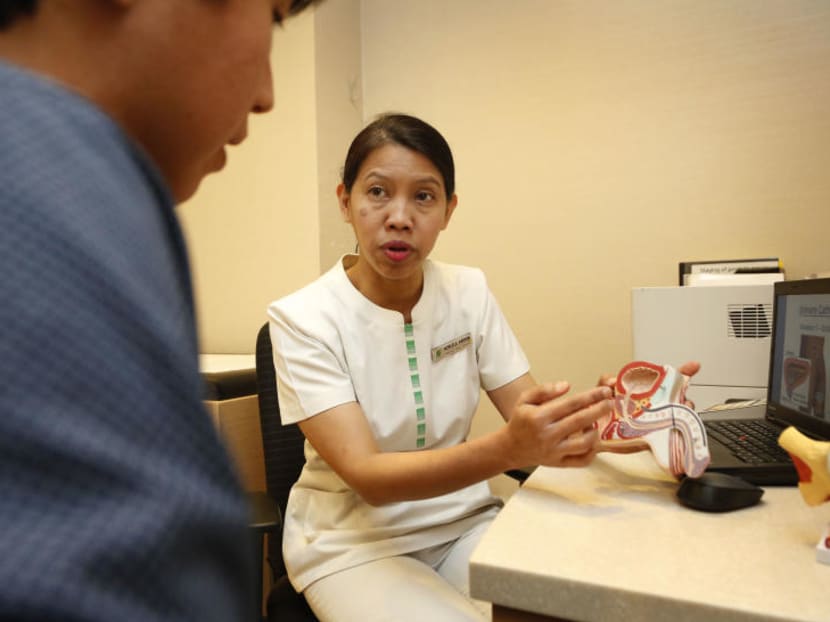Empowering our nurses
By empowering nurses, doctors could spend more time on their patients and on their own education. Nurses find their job more fulfilling as they could contribute more to the care of their patients. And patients also benefit, as nurses could provide bedside services more promptly, rather than waiting for the overly burdened doctors to come.
When I graduated as a Houseman back in 1994, I had to perform many ward duties, including taking blood from patients, setting intravenous plugs, titrating and giving intravenous medications, picking patients’ finger tips to test for capillary glucose level, etc.
These ward duties took up most of my time, resulting in less time spent on talking to patients and learning from seniors. I could still remember administering intravenous medications throughout the night during night duties, without sleep of course.
But things have changed over the last 24 years, with nurses gradually taking over some routine ward duties from doctors.
This change benefits all parties, especially since Singapore’s population is ageing rapidly and demand for healthcare is growing. Doctors could spend more time on their patients and on their own education. Nurses find their job more fulfilling as they could contribute more to the care of their patients. And patients also benefit, as nurses could provide bedside services more promptly, rather than waiting for the overly burdened doctors to come.
With this in mind, it is heartening see new initiatives announced in the latest Ministry of Health (MOH) Budget.
MOH is investing more in nurses. More nurses will be trained to take care of patients in the community. They will be trained to provide post discharge care and to handle complex medical issues. Nurses would also provide home care, such as wound care management and end-of-life palliative care.
To increase the total number of nurses, more will be trained, and more mid-career switch opportunities would be offered to non-medical professionals. Besides, older nurses would be re-hired after the official retirement age of 62 years.
New advanced diploma courses would also be offered in community health nursing and gerontology.
Lastly, experienced and qualified nurses will be allowed to prescribe medications to patients, bringing medical care to the community and to the patients’ homes.
These are well thought-out and comprehensive plans.
However, there are still hurdles to be crossed and questions to be answered, before these plans can be rolled out seamlessly on the ground.
First is the issue of rules and legislation. The Singapore Nursing Board (SNB) would need to amend its rules, which currently do not allow nurses to prescribe medications to patients.
SNB ought to set out criteria for training and accreditation standard for this new responsibility. How senior must nurses be before they are allowed to prescribe? How will the training be? Would it be a standard three-month or six-month course for selected nurses? Would there be a standardised examination or assessment at the end of the course?
In America, nurse practitioners are allowed to prescribe medications to patients. To become a nurse practitioner, one must first be qualified as a staff nurse, followed by a few years of working experience, and then a two-year master degree course. Should we be as robust and intensive as what is done in the US?
Currently, all practising doctors are required to purchase medical indemnity insurance. With the new prescribing privileges and responsibilities, there may be a higher risk of nursing error. Would SNB therefore enforce similar indemnity insurance for all senior nurses?
A second issue is the level of responsibilities for nurses. At the moment, nurses mainly execute medical decisions made by doctors, who are ultimately responsible for the patients and their clinical outcome.
If nurses are making clinical decisions for patients, they should also be responsible for their own actions. If a medical error is committed by a community nurse, would the responsibility be held by the nurse herself, or the overall supervising doctor? This needs to be made clear.
The third issue is acceptance. Would patients be happy to be seen and managed by nurses? With many family medicine clinics and polyclinics all over Singapore, it takes little effort in consulting a nearby family physician, at reasonable charges. Many family physicians also provide home care. How then could MOH persuade patients to consult community nurses?
Perhaps nurses could learn from family physicians. It took a group of senior family physicians several decades of hard work to establish Family Medicine as a speciality. Today, many patients are happy to consult their family physicians near their home, rather than turn to specialists for their ailments. MOH would have to work hard to make patients feel safe to consult nurses, instead of doctors.
Last is the issue of finance. Currently, patients enjoy substantial government subsidies when they consult doctors at polyclinics, or family physicians. Singapore citizens pay S$12.50 to see a polyclinic doctor, and S$24 to see a family physician at polyclinics. Many private family clinics charge similar rates after the Community Health Assist Scheme subsidy. Would cost of community nurses be even more subsidised, at even lower charges?
The concept of community nurses has been around for decades. Nurses from Home Nursing Foundation have been visiting patients’ home to perform bedside duties like changing nasogastric tubes, urinary catheters, doing wound dressing etc. MOH has certainly realised there is much demand in community nursing, and there a lot more that nurses can do for their patients.
Allowing nurses to do more for the community is certainly good for the overall medical care for the nation. Doctors’ time can be freed up to perform higher level duties. Family members of sick ones do not need to take leave to bring the patients to consult doctors. Instead, community nurses could visit patients at home and manage them there and then. It is indeed an all-win situation.
It is time we empower our nurses to do more.
ABOUT THE AUTHOR:
Dr Desmond Wai is a gastroenterologist and hepatologist in private practice.







